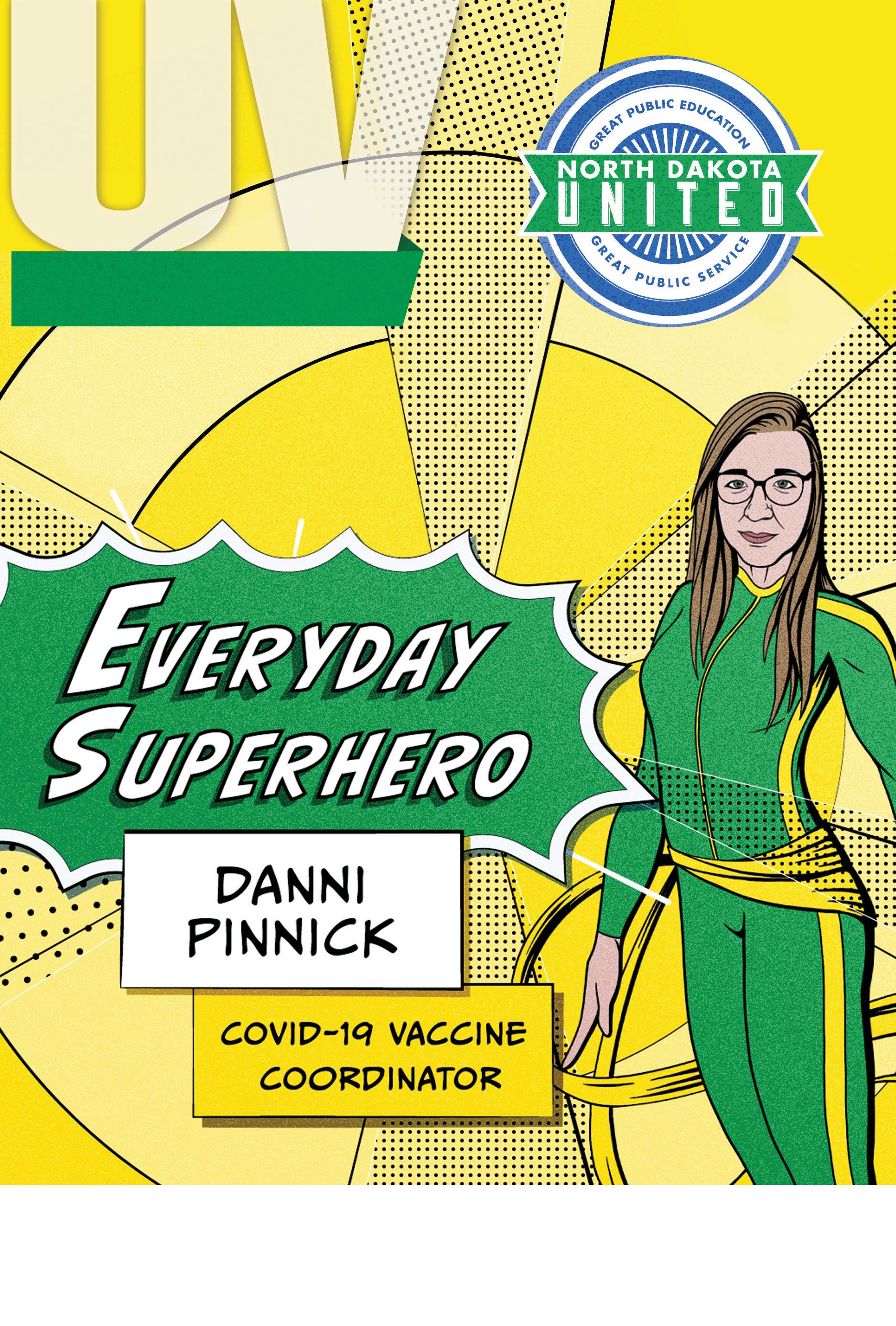
4



4

Parents play a crucial role in the development of their children. I am certain I’m not alone in wanting to make my parents proud of the child they raised into adulthood. My mom, Sandy Hagen, was a product and proponent of the North Dakota public education system and believed in the same values that we all share at North Dakota United. She was a state employee for a time in the ‘70s, which was when and where she met my dad, Jim Hagen, while working at the state Capitol. She adored her three children and six grandchildren, and she wanted to give them every possible opportunity to succeed and live a good life. While growing up, she and my dad, were my heroes, every day.
My mom passed away on Feb. 2, just as we were starting to put this issue of United Voices together. I hoped to dedicate a few words to her and to all the parents out there who are doing the best they can to teach, to protect and to care for children during tough times like these. Your service and all of the sacrifices you make for the common good will never be forgotten.
I love you, Mom. I always will.

Kelly Hagen, United Voices Editor
Use your super-sized voice and influence to affect what happens at the state Capitol
As you might imagine, we are super busy tracking and attempting to influence legislative proposals as they wend their way through North Dakota’s 67th Legislative Assembly. Our elected senators and representatives began the session with 847 bills and 61 resolutions to consider. By crossover (the time when House bills move to the Senate and vice versa), that number had been reduced to 643 legislative proposals awaiting action. As you can see, there is still much to do before both houses adjourn sine die.
The fate of many of these bills is uncertain. What is certain, however, is that how they are decided will impact the lives of North Dakota United members and all North Dakotans. In fact, every decision that affects the work lives of our members is a decision that is made in Washington, D.C., or Bismarck, ND. Whether the issue is University System and K-12 funding, or PERS funding and state employee salary increases, the decisions will set the tone for the next two years. That is why ND United is involved in politics. We need to be in the room when ideas are being discussed, and we must be there to alert the decisionmakers to the consequences of their actions.
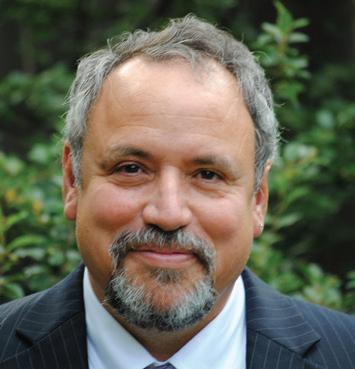
By Nick Archuleta NDU President
So, even though your ND United Lobby Team and I spend countless hours at the Capitol, on Zoom meetings, and on phone calls with policy makers, agency leaders, and other stakeholder groups, we cannot achieve our goals without help from NDU’s Everyday Heroes, also known as YOU! So far this session, almost 1000 of your colleagues have reached out to their legislators, various committee members, legislative leaders, and others to advocate for the passage of bills that enhance their workplaces and for the defeat of bills that hinder their work in providing education and other vital public services to the good people of North Dakota.
As the second half of the legislative session unwinds, you can expect us to call on you to don your cape and take even more heroic actions on behalf of yourselves, your colleagues, and the people of North Dakota. There are still many bills in the hopper that chip away at academic freedom, collective bargaining, secure retirement benefits and safe workspaces. We will need all hands on deck if we are to be successful! Thank you all for your awesome, heroic work.

By Alex Rohr NDU Communications
While a comic book superhero usually draws their power from enhanced genetic inheritance, a sudden cosmic event or a technological catalyst, North Dakota United’s Everyday Heroes use their mortal strengths to lead and serve our state every day, whether there’s a crisis or not.
Long before COVID-19, North Dakota’s Everyday Heroes were nurturing young minds, delivering children safely to school and protecting the public health. But like comic book heroes who remain anonymous until a cataclysmic crisis arrives, our Everyday Heroes reported to an unprecedented task of responding to a worldwide pandemic and the echoing ramifications.
The Everyday Heroes campaign transformed six ND United members as comic book heroes to depict the life-sustaining services our members provide every day. The various ads have been running across the internet, social media, and TV airwaves over the last couple months.
Still, after seeing themselves enhanced and donned with a cape, our heroes described themselves more in terms of the humble reporter Clark Kent than his all-powerful alter-ego Superman. While enjoying the artist’s renderings, they said they were only a stand-in for their colleagues.
“I just want people to see it as a representation of the kind of people who do work in the public sector,” said Danni Pinnick, a North Dakota vaccine coordinator. “It’s everyday people doing their jobs.”

When the COVID-19 pandemic struck, public health workers were among the first to running toward the slow-moving disaster.
They had to be nimble as conditions and available information constantly evolved and the virus spread. With rapid speed and growing precisions, they built accessible testing programs and now vaccine distribution networks.
Pinnick, a North Dakota vaccine coordinator, is among their ranks, and her super power is keeping people safe from COVID-19. Pinnick was quick to point out that she is part of a dedicated team and network that contributed their resources and talents to ramp up public health services “times 1,000.”
“We might want to consider ourselves more like the Power Rangers,” Pinnick

said. “We work really hard and we have a lot of abilities on our own, but we’re really our best as a more cohesive force.”
That cohesion is at the core of North Dakota’s COVID-19 response, in particular the vaccine distribution program that is receiving national accolades for efficiency to get shots in the arms of North Dakotans. But to finally defeat the viral villain, we will all need to do our part by taking the vaccine when we have a chance.
“We can all protect each other,” Pinnick said.

After reading a news story about Fargo schools planning to turn students with lunch debt over to collections, Jason Boynton took action. He joined with his now partner Kari Lugo to form Fargo Lunch Aid to raise money and pay off those debts.
With help from friends, community and other nonprofits, they formed a sort of Food Justice League that Boynton said is going to be necessary with so many people struggling financially during the pandemic.
One of Boynton’s driving motivations was the injustice of it all to the students and families. His empathy, the ability to put himself in his student’s shoes, drives his work as a math professor at North Dakota State University. It’s also his super power.
“Honestly, I think empathy is something that the whole country needs help with in all the aspects. If that’s something that we can all learn to acquire, I think we’d be a lot better off.”
Math, he said, is a subject many students don’t take to easily, and it’s incumbent on him as a teacher to help them make the connection.
“I remember what it’s like to learn math, and I want to be mindful of that at all times. I want to acknowledge that it’s challenging, that a lot of people have difficulties with it,” Boynton said. “If you try to explain it one way and the student doesn’t get it, then you need to try something else.”

Teachers have the hallowed responsibility to shape young minds. And with great responsibility, sometimes comes great power. And for Kelly Suchy, a third grade

teacher in Bismarck, that’s the power of positivity.
When a student stumbles along their path to reading or multiplying, Suchy helps them learn to reframe the situation.
“I talk a lot with them about being future forward,” Suchy said. What you do here is important because you can be anything you want to be, and you gotta think toward that. You have to manifest that within yourself. How can I think positively about this case, and not make it a chore, but make it the next step for this great life I can have for myself.”
Her attitude can be contagious, especially as children face loss or feel the ramifications of financial hardship happening at a greater rate than normal because of the pandemic. Before learning multiplication or division, she said “these little minds and little hearts” need care.
“I wake up every morning really excited to come to my work. I have never doubted that teaching is my calling, and I fully recognize that it’s not an easy job and anyone who says it is is fooling themselves. But if you go after it with a positive spirit, your outcome is going to be so much greater than if you face it with the heart of a skeptic. If you don’t have the most hopeful outcome for these children in mind, why would they think that for themselves?”

When one of Barb Dubord’s older student riders got on the bus appearing visibly frustrated recently, she asked what was wrong. The student sat down at the front and vented on and off throughout the afternoon ride.
“You could tell, he just needed to talk,” Dubord said. “I know how it feels, if you can vent to somebody, the feelings pass. It helps.”
Dubord, a Kindred bus driver, gets to know students over a decade as they ride her route from kindergarten until they get their driver’s license.
“It’s almost like an extended family because you get to know a little bit about each one.”
She gets to know them by their feelings, rather than their academics. Her super power is caring, whether it’s a problem at school, a loose tooth or a new pair of shoes.

North Dakota
United’s Everyday Heroes use their mortal strengths to lead and serve our state every day.
“We would not be in this profession if we didn’t all have that caring attitude,” Dubord said. “It would be short-lived anyway, if we didn’t.”


Despite moving districts a few times, Michelle Kukowski still gets Facebook messages and wedding invitations from students in her first district. While students may pass through her class for only a year, Kukowski’s super power is building relationships with her forever kids.
“I’m just a big person on making kids feels loved, welcomed, hopefully comfortable so that they can share anything that’s on their minds with me. I just always try to be there with open ears, building those relationships, high fives and celebrations, and knowing that I care about them not just this year, but forever,” said Kukowski, a fifth grade teacher at BM Hanson in Harvey.
The emotional commitment teachers offer is not always known by the public. When a teacher offers a child clean clothes or a winter coat, it’s often secret. And the extra virtual tutoring time isn’t clocked.
“Most of the public doesn’t know all the hidden stuff that teachers do, the extra committees you’re on, or being that kid’s hug for the day,” Kukowski said. “It’s not just teachers, our paras go
above and beyond. They play such a vital role for these kids too, and providing that stability for them, that caring nature.”

When Sonja Mahlum retired, she found out she wasn’t a very good retiree. So Mahlum returned to education by subbing and teaching English as a second language to refugees. And after the pandemic started, she began tracking COVID-19 cases in schools for the Department of Public Health.
“I’ll probably be working until I can’t,” said Mahlum, whose super power is a strong work ethic. “I think all teachers are super heroes, particularly this year.”
Before the pandemic, teachers routinely clocked days much longer than the standard eight hours. Now, they needed to prepare both in-person and virtual lessons to make sure students have what they need. The public health workers she’s been around have been doing incredible work as well, she said.
“I think the general public really doesn’t have any idea of the amount of hours and the amount of time and effort that those workers actually do. I am grateful for all the wonderful teachers who are doing it for my grandchildren.”




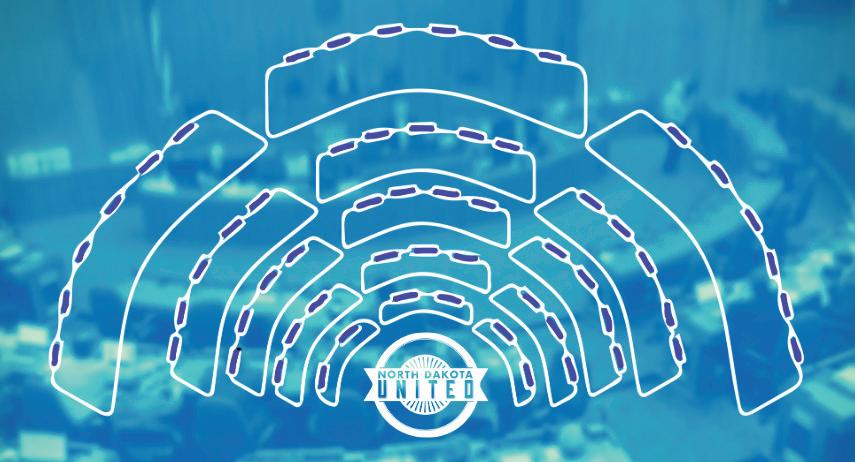







House Bill 1323





Preempts Public Entities from Requiring Masks
Position: Oppose




Outcome: Passed, 50-44




HB 1323 eliminates the ability of an elected official, the state or any political subdivision to require masks. It is the opposite of local control and would eliminate the ability of a school district to require masks in school buildings.



Senate Bill 2033


By Sarah Keiser, NDU Communications


Position: Support





Senate Bill 2169

University System Capital Building Fund
Outcome: Passed, 47-0



















Relief Grant Program for Essential Workers
Position: Supported n





Outcome: Failed, 7-40


This bill creates a University System Capital Building Fund in the state treasury. Moneys in the fund will be used for all capital projects on ND universities, as overseen by the legislature and the State Board of Higher Education.





This bill would have created a COVID-19 relief grant program for essential workers.














House Bill 1503




End State of Emergency





HCR 3007 attempted to end the Governor’s state of emergency, which would have resulted in the end of critical education pandemic response policies. President Archuleta testified against this bill. L W




Position: Opposed n
Outcome: Failed, 28-65











House Concurrent Resolution 3007






















Position: Oppose






Free Speech at Higher Education Institutions
Outcome: Passed, 65-29







NDU members were perplexed when this bill first came to light during the 2019 session. While at first glance it seems to promote positive, democratic ideals: allow anyone on a higher education campus to have their own ideas and express them freely. However, we are concerned the bill has the potential to erode academic freedom by regulating what a professor can say during class time, even making them vulnerable to disciplinary action if they express their ideas. It also reduces the protections for student-on-student harassment.









































For complete, up-to-date information please visit the 2021 Legislative Session section of ndunited.org.

Senate Bill 2215
Shortens Time Period for Contract Negotiations
Position: Oppose
Outcome: Passed, 37-10



President Archuleta testified against SB 2215, which is a power grab that could strip away local control over education, harm students, and hurt teachers by shrinking the amount of time for negotiating contracts. NDU was able to work to pass some amendments to make the bill better, but it still unfortunately passed the Senate on Feb. 16 by a vote of 37-10. We will continue to diligently fight this bill in the House.

House Bill 1058
Improves Leave Sharing for State Employees
Position: Support
Outcome: Passed, 90-3


House Bill 1311
Conceal Carry Locations
Position: Opposed n
Outcome: Failed, 43-49
HB 1311 would have removed restrictions on the locations an individual is allowed to carry a concealed weapon, thereby allowing concealed weapons in all publicly owned and operated buildings except those that meet all of the following criteria: serves a court, has a metal detector and an armed guard.

This bill would improve leave sharing for state employees. It failed in its original vote in the House chamber, but was reconsidered, amended, and eventually passed. It has already been heard in the Senate Finance & Taxation committee, where President Archuleta continued to offer NDU’s support.


House Bill 1342, Senate Bills 2042 & 2046
PERS Solvency Bills
Position: Support, with caveats
Outcome: HB 1342 Failed, 37-57; SB 2042 Failed, 1-46; SB 2046 Passed, 47-0








All three of these bills increase the employee/ employer contributions to PERS in an effort to fully fund PERS. This issue has been ongoing for many sessions as previous legislatures have failed to cure the underfunding. HB 1342, which failed, would have increased the contributions by 1% each



















– similar to SB 2046, which is still viable. SB 2042 increased both employee and employer contributions by 5.12% each. NDU has supported bills such as these in the past to shore up PERS, but we have also been consistent in our message that pay raises must more than cover this increase.













Bill 1398


Paid Family Leave – State and Political Subdivisions
Position: Oppose



Outcome: Passed, 79-14




HB 1398 mandates that the state and other political subdivisions may not require an employer to provide paid family leave. It is an unkind bill that fails to see the import and value of the family unit. President Archuleta testified in opposition to this bill in the House and will continue to do so on the Senate side.






House Bill 1075

in support, but this bill was ultimately withdrawn from consideration after it received an unfavorable recommendation from the Employee Benefits Program Committee.

Fall Conference Days
Position: Support Outcome: Passed, 87-3

















House Bill 1441



Position: Support


HB 1075 eliminates the days that were set aside for the fall conference, giving the decision to local school districts. President Archuleta testified in support of this bill, and NDU will continue to monitor its passage through the Senate.







Outcome: Passed, 75-18

Paid Family Medical Leave Program






House Bill 1114








Teacher Mentorship Program
Position: Supported n Outcome: Failed, 23-71


President Archuleta testified in support of a paid family medical leave program. This bill has been amended into a study and passed the House.




Senate Bill 2300

















Full-Time Benefits after 24 Months
Position: Supported n





Outcome: Withdrawn from consideration







This bill would have made a full-time temporary public employee eligible to receive full-time benefits after two years of employment. NDU testified










House Bill 1210

This bill would have appropriated $3 million to expand the teacher support program for 1st and 2nd year teachers.





Position: Support




Teachers’ Out-of-Pocket Classroom Expenses










Outcome: Passed, 63-26







This bill directs legislative management to consider a study on teachers’ out-ofpocket classroom expenses. Should it be passed in the Senate, this bill is not a guarantee that such a study will occur, but NDU will certainly be pushing for action.




























Position: Oppose

















Outcome: Passed, 50-44



Diverts Funding from Public Schools to Private and Homeschools




In an already resource-tight legislative session, HB 1281 could divert much-needed funding from public schools to private and homeschools. Fewer dollars for public schools could mean larger class sizes and heavier workloads or even higher property taxes. Diverting resources from classrooms would add to the stress and burnout driving teachers away from classrooms and their students. NDU will diligently fight this bill in the Senate.
House Bill 1369









Education Empowerment Program
Position: Opposed n

Outcome: Failed, 45-49


NDU opposed this bill due to our strongly held belief that public funding should go solely to public schools.

Alternative Curriculum Outside the Classroom

Position: Support Outcome: Passed, 87-7
President Archuleta provided testimony, focused on the importance of the teacher’s role in developing curriculum, in support of this bill. It was amended before passing the House.
Scholarship Program in Teacher-Shortage Areas


Position: Supported n Outcome: Failed, 9-38
SB 2229 would have provided for student teacher scholarships in geographic areas identified as teacher shortage or critical need.


Education Scholarship Tax Credit


Position: Opposed n
Outcome: Failed, 16-30
Paid K-12 Breakfast and Lunch




Position: Support




Outcome: Passed, 70-24


President Archuleta testified in support of this bill, which was originally written to provide funding for breakfast and lunch for all K-12 students. It was amended into a study by the House Education Committee.













Yet another voucher bill, this one masquerading as a tax credit. In a win for public education, SB 2288 failed in the Senate.






After School Programming
Position: Supported n
Outcome: Failed, 9-37












SB 2257 would have provided a $3.5 million appropriation to the ND Department of Public Instruction to provide grants to school districts to establish after-school programs.










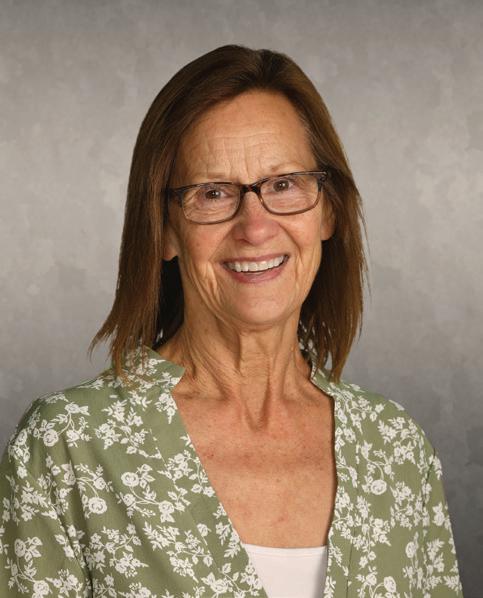
2021 ESP of the Year offers lessons in patience and grace she’s learned in nearly 50-year career
By Kelly Hagen, NDU Communications
What’s your job?
If you ask 1,000 different people this question, you will likely get 1,000 different answers. Ask any of our 11,500 members of North Dakota United members, and you’ll get a lot of different answers, too. But if you ask Christina Cahill, a paraeducator for Mt. Pleasant Public School in Rolla and the 2021 NDU Education Support Professional (ESP) of the Year, she’ll tell you that there is one unifying thread woven throughout almost every one of those responses.
“I think it’s everybody’s job to care for children,” Cahill said.
That’s been Cahill’s job for more than four decades, both as a preschool teacher for 42 years and the last four years in her position as a paraeducator for in Rolla. “If you see a need, you
need to be there for the child, no matter what position you have,” she said. “It’s never just one person’s job to pick up or clean or to stop a child from running the hallway. Those jobs belong to all of us that work there. I think all those positions are so very important, they’re vital.”
Cahill’s path toward becoming a life-long public educator started in Maddock, where she was raised in a large family. She said she was inspired to care for children at a young age by her family and their babysitter. “She was an only child, and she was asked to babysit a family of eight children,” Cahill said. “And she did that every Saturday for my mom and dad while they worked at the bakery — I’ve just always been around kids, though, and I think that was the driving force that had me go into this career.”
She receiver a bachelor’s degree in education from Mary College, now University of Mary in Bismarck, with a minor in early childhood education. After college, she started in her position at Turtle Mountain Head Start in Belcourt, when the program was still relatively new.
“When I arrived, there were six classrooms of about 18 to 20 children apiece, and two adults per classroom,” she said. “And when I left, there were, oh my goodness, 11 classrooms plus some outreach centers around there. Our director was in charge of five different centers at the time, in neighboring communities. I think they all had basically the same class size. So, a lot of children.”
In the early years of her teaching career, she learned to depend upon the

assistance of colleagues. “We had an aide that was with us, and later on, we ended up with a parent aide also, so there were three adults in the classroom,” she recalled. “But that didn’t happen right away. We developed our own lesson plans. We wrote our own IEPs back then. We did our own referrals back then for children that we thought might need some extra help ... Back then, you know, there just wasn’t as much staff on hand. So, we were a very close working community.”
When the time was right, Cahill retired from teaching. She wanted to still stay busy and continue to work with children, though, and circumstances were right for her to find a new position in education.
“I’ve always lived in Rolla,” she said. “I live a block from the school. The elementary principal that’s in Rolla right now, she sent her two children to Head Start and I was their teacher. And so, I had called her when I retired from Belcourt and asked if they were any paraprofessional jobs opening. She said, yes, so that’s how I came to Rolla.”
In her time as a para, Cahill has come to be known among her fellow educators as a dependable co-worker and friend, and a tireless advocate for children with special needs. “She does an excellent job working with our students,” said Brenda Seehafer, a Title I teacher in Rolla and the NEA Director for North Dakota United. “Some of the students that she works with are the students who have behavior or social/emotional issues. She is always willing to try out whatever program or system is discussed for the child. She is always willing to do what is asked.”
Cahill was selected as the 2021 NDU ESP of the Year because of the dedication and passion she displays for students, and for lending a helping hand to her fellow professionals in education. She received the award at a staff meeting in Rolla on Nov. 30, 2020. NDU President Nick Archuleta was able to Zoom into the regularly scheduled meeting, and his appearance took Cahill by surprise in announcing her selection.
“ ”
If you see a need, you need to be there for the child, no matter what position you have.
“I had no idea what was going on,” Cahill said, with a laugh. “But it’s very rewarding to know that people recognize you for this, that you have actually made a difference. But this has been such an honor and such a humbling experience. But I also feel that there are so many people out there that are so deserving of something like this, that it’s not just me.”
Seehafer said Cahill possesses a unique ability to keep children focused on the task at hand while also calming their emotions. “She just has that way with students in that she can get them to relax,” Seehafer said.
And the one piece of advice she has for all educators is this: Always be kind. “I just think that’s so important nowadays when you don’t know what children come to school with,” she said. “If they can relate to somebody being kind, I think it is worthwhile to put that extra effort forward and be kind.”
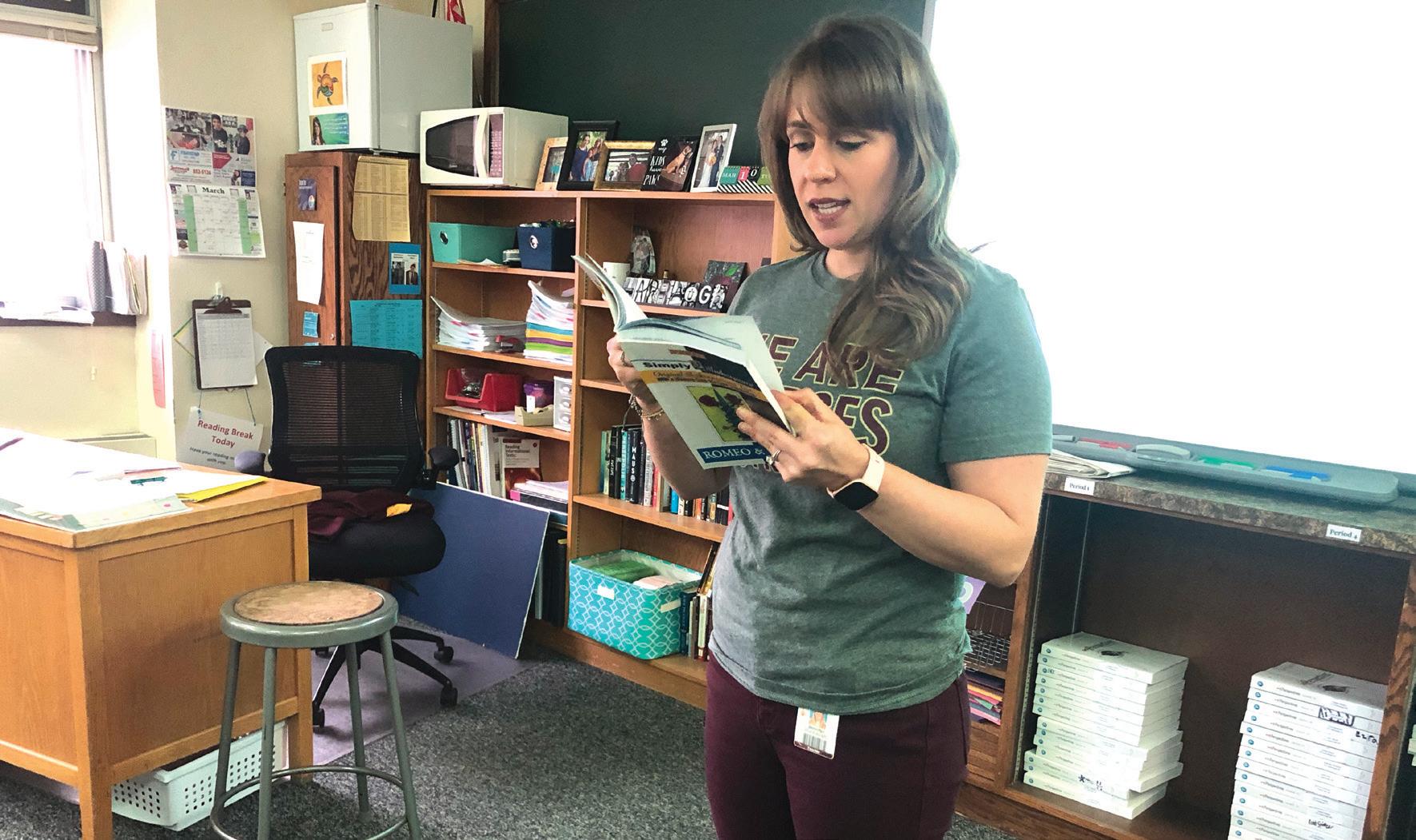
By Tom Gerhardt, NDU Communications
Sources of Strength was implemented in Minot just over two years ago. The program’s mission is to prevent suicide, bullying and substance abuse by building relationships between peers and adults — using peer leaders and focusing on eight pillars of support.
At Central Campus in Minot all involved say Sources of Strength is making a difference in students’ lives. Central Campus is busy — with 1,000 students and 150 staff members. You can see how it would be possible to get lost in the shuffle.
Sources of Strength is helping to make sure no one falls through the cracks. Started a couple of years ago, the program is helping forge positive connections, build relationships and ultimately impact the overall wellbeing of students. Jennifer Harbaugh, English
teacher and the program director, said, “We are in a building where education comes first. But at the same time, a student’s mental health and emotional health, as well as their physical health, are also ranked up there with how important their education is. And if people can just realize that when you put all of that together as a whole, then I think you have a more successful student.”
Every month the group meets at Central they try and get students to look at something positive in their lives. Or if they need help — point them toward where they can get it. “I think here at Central Campus, we have a lot of students coming and going with the Air Force Base here,” said language arts teacher Kristina Byer. “Moving in because of job opportunities for their families, it’s really, really hard to meet
new people at a high school level. You’re in class for 50 minutes and you move from class to class. So I think building those connections is very, very important in high school. And I think Sources of Strength has been able to let students know they are wanted here. They’re part of this community and they can form these connections with students and staff.”
Sources of Strength – and the activities surrounding it – have provided a safe environment for students to come out of their shell. “I was very shy at the beginning of the year,” said student Willow Green. “I kind of just stick to myself. And I found other people who stuck to themselves, which isn’t a bad thing. But joining Sources of Strength has certainly made me come out of my shell a little bit more. I am more confident talking in front of a bunch of people. I’m more confident going up to someone new and just being like, ‘Hey, I want to be friends’ and just be more open.”
Sources of Strength is helping to make sure no one falls through the cracks. “ ”
“I really like it because it shows how we can do things in the community and our school district. And its main focus is making others feel included and helping them through things that they may not want to talk about with everybody. But we have activities that we do that include everybody,”
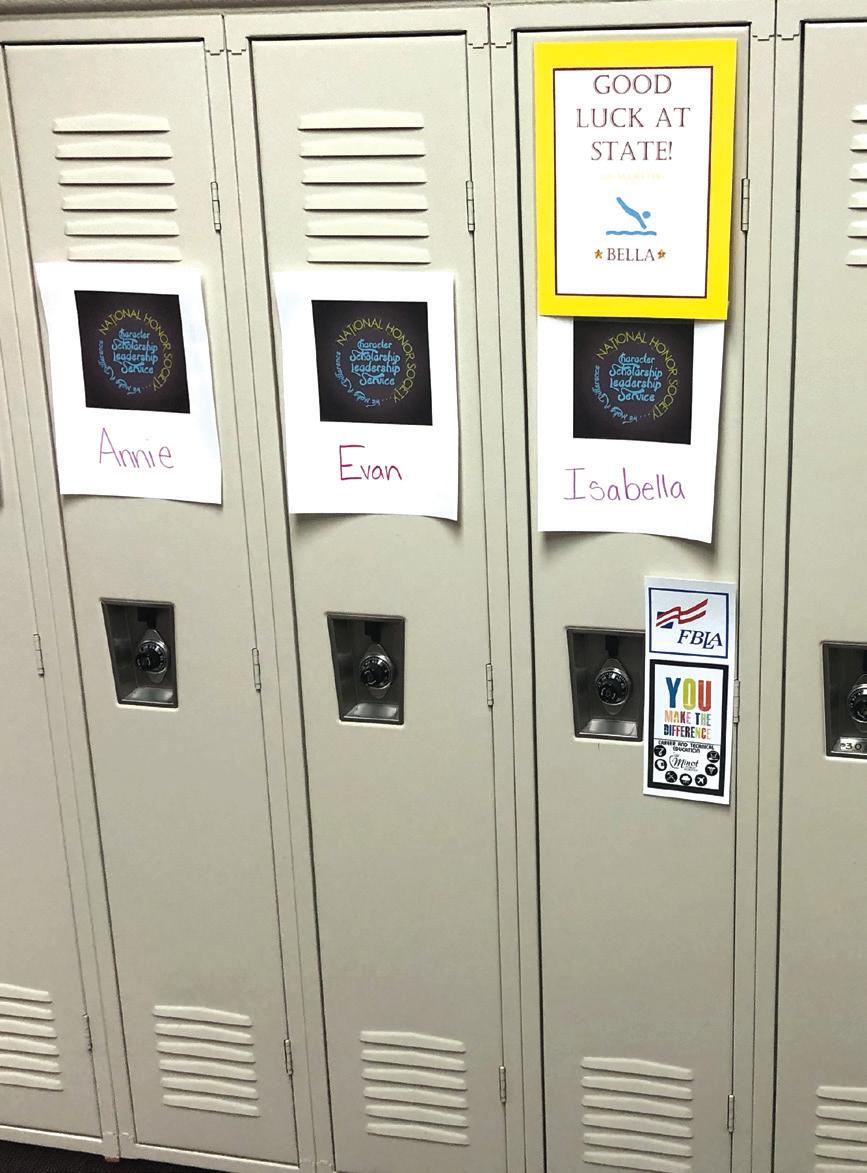
said Kayla Prestwich, a student at Central Campus. “I think it’s a great community of people. They definitely have changed me for the better because it’s like a group we can open up and talk about certain things that you probably wouldn’t be open to talk about with other kids. And it just really, like, changed me for the best I think.” Ultimately, principal Harlan Johnson says if it makes a difference for one student, the program is worth it. “When I think of if it makes a difference for one kid, then it’s worth it in the end. It was based as a suicide prevention program right away, but now it’s really morphed. Kids really kind of have that whole wellbeing, the whole circle on everything, so that they really feel that they’re part of something within our building.”
Join with fellow union members to learn, network and vote on our future
The 2021 North Dakota United Delegate Assembly will be conducted virtually on April 17, 2021. While this is not ideal, it does give us the opportunity to have at least one delegate from each local participate. If so, we could have over 200 participants in this year’s Delegate Assembly!
Each local should have already received an email from President Archuleta with specific information. Each local is guaranteed at least one representative. Larger locals are allowed one per 50 members. Please complete and return the Delegate Report Form included in that email ASAP, but not later than April 9.
On April 12 and 14, we plan to conduct pre-DA Zoom meetings that will cover the same topics so delegates may attend the meeting that works best with their schedule. The meetings will cover the proposed budget and any other items we may need to discuss in more detail. The proposed budget will be sent well in advance of the meeting so that all delegates have time to read it and develop questions.
The Delegate Assembly will be convened via Zoom on Saturday, April 17, at 9:00 a.m. to conduct our annual business meeting, including the election of NDU Board of Directors
North Dakota United April 17, 2021
for the following positions: ESP Director, Higher Ed Director four-year Institution, K-12 Director from District with Greater than 600 Students, Northeast Region Director, Northwest Region Director, and one NEA RA Delegate.
The deadline for election petitions passed with several NDU Board positions receiving no petitions. There is a process for this situation in the NDU Bylaws that allows for nominations from the floor of the Delegate Assembly. If you are qualified and interested, or know of someone who is interested in serving on the NDU Board of Directors, these are the open positions: Ethnic Minority Director, Higher Ed Director two-year Institution, Higher Ed Support Professional Director, K-12 Director from District with Less than 600 Students, Public Employee Director, Southeast Region Director, and Southwest Region Director.
The NEA Representative Assembly will be held virtually again in July 2021, and we have several delegate positions open that can also be nominated from the floor.
Questions? Please contact Kathy Gourlay at kathy.gourlay@ndunited.org or 701-223-0450. More information will be available soon at ndunited.org.

North Dakota United will be holding elections at the Delegate Assembly for officers and delegates to the National Education Association’s virtual Regional Assembly in July. All of the candidates are running unopposed and therefore will be automatically elected. Here are the bios and pictures of our candidates:
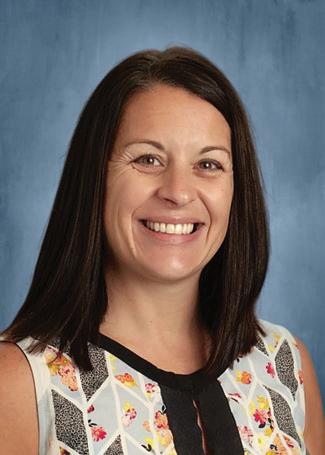
Denbea McNally is a Paraprofessional Direct Services ED at Lewis & Clark Elementary School in Minot. She was
also the 2019 North Dakota United Education Support Professional of the Year.
McNally received her Bachelor of Science degree in Recreation Management from North Dakota State University. She is married and has a son.
She has served on the NDU ESP Advisory committee, as a NDU Delegate for the Minot Education Association, as a Minot Education Association Building Representative for ESP, and as a 2019 NEA RA State Delegate.
“After moving back to Minot in 2012,

I found my love for education. I started working at Jim Hill Middle School as a Time Out Aide/Attendance Secretary. In 2014 I changed jobs and schools and started working at Lewis & Clark and have loved it ever since”.

Ernest Pijning is a Professor of History at Minot State University, where he has been employed since 1999.
Pijning received Master of Arts degrees in history from both Leiden University in the Netherlands and John Hopkins University, as well as a Ph.D. in history from John Hopkins. He has served as a board member for the ND Public Employee Local (NDPE), president of the Minot State
University chapter of NDPE and a member of the Missouri Slope Central Labor Council.
“Born in Alkmaar and raised near Rotterdam in the Netherlands, I did my undergraduate education in Leiden. My three brothers, who all live in the Netherlands, currently have 6 children and 2 grandchildren. I moved to the United States in 1991, and have been living in Maryland, Arkansas, and North Dakota. My nearest family lives in Canada (near Vancouver and Toronto). In the Netherlands, I did my obligatory service in the Dutch army (APO), during which I was also a union member.
“I am a board member of the Minot Area Council for International Visitors, which receives visitors from all over the world, who are sent to us by the Department of State. I am an avid curler, a soccer fan and I like live music concerts. I speak, write, and read too many languages.
“At Minot State University, I have served in about every Faculty Senate committee. I have been president of the Faculty Senate, president of the Council of College Faculties, and faculty representative on the State Board of Higher Education.”
––––––––––––––––––
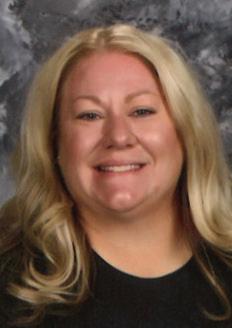
Danielle Borseth
is a seventh grade physical education teacher at Mandan Middle School. She previously worked as a physical education teacher at Jefferson Elementary in Valley City, and as a long-term substitute for eighth grade health and PE at Holgate Middle School in Aberdeen, S.D.
Borseth received her bachelor’s degree in composite K-12 Health and Physical Education from Northern State University in Aberdeen, and her master’s degree in Curriculum and Instruction from St. Catherine University in St. Cloud, M.N.
Borseth was elected to the NDU Board of Directors as the K-12 Greater than 600 Director in 2019. She is the past president of the Mandan Education Association, serving from 2015-17. Additionally, she is the MEA hospitality chair, and has served as president-elect, negotiator, negotiations committee member and building representative. She has served as a local delegate to the NEA RA in 2015, and a state delegate in 2016. She has been a member of NEA and NDU since 2001, and was
also a student member of NEA and the South Dakota Education Association.
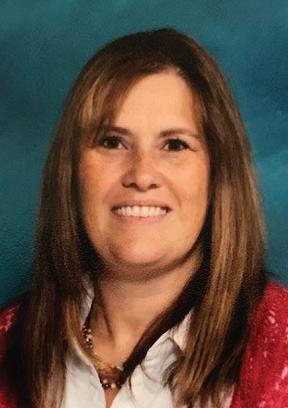
Darby Hart is an English/Language Arts Instructor in Langdon. She is running for re-election as the Northeast Region Director. She has served as a past president of the Langdon Area Education Association, and currently serves as a member advocate and negotiator. Under NDEA she was a resolutions ambassador and a member of the Ready Child Commission.
Hart received her bachelor’s degree in English Education from Minnesota State in Moorhead. She is president of the Lake Region Teacher Center Board, sits on the ACT Standard Setting Review Panel, and on the Curriculum Content Review committee for the ND State Assessment.
“I was born in Wichita Falls, Texas when my dad served in the United States Air Force. I completed public school in Langdon and attended college at MSUM. I have been involved in the Northern Lights Art Council and am a vocalist in the praise band and a Faith and Care Group Leader at United Lutheran Church. I have had multiple nominations for our local teacher of the year recognition and have been selected as the Most Influential Teacher by several graduating classes at Langdon Area High School.”

DIRECTOR ––––––––––––––––––
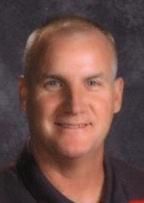
Alan Leintz is the Lead Custodian at Erik Ramstad Middle School in Minot. In addition to his tenure as NDU’s Northwest Region Director, he has served as a board member of the North Dakota Public Employees Association, the president of Chapter 52 of the NDPE, and financial secretary of Chapter 52 of the NDPE.
“I was born and raised in Harvey and graduated from Harvey High School in 1984. I moved to Minot in 1986 and have lived in Surrey since 1991. My wife of 35 years, Cindy, is a Teacher/
Librarian at Nedrose Public Schools. We have three daughters, Samantha (Ryan), Kayla, and McKenzie (Cody) and two grandchildren, Gwendolyn and Judd. I have been a custodian at Minot Public Schools since 2001 and am currently the Lead Custodian at Erik Ramstad Middle School.”
NEA RA DELEGATE ––––––––––––
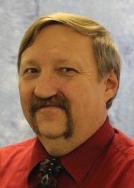
Tim Thueson is a Title I coordinator and Title I math and reading teacher at Solen.
He served as president, vice president and negotiating team member at the local level. He is also
North Dakota United April 17, 2021 DELEGATE ASSEMBLIES
Join us on April 17, 2021, when we will hold the 2021 North Dakota United Delegate Assembly virtually.

a member of the Communications, Speech and Theatre Association of North Dakota. He has been involved in school improvement, the North Dakota Theatre Arts Curriculum Frameworks Committee, the North Dakota Reading Association, and the North Dakota Geography Alliance. He is actively involved in the Lions Club and has held many leadership roles.
Thueson graduated cum laude from Mayville State University with a bachelor’s degree in Education. He received his Master of Science degree in Education from Minot State University. He is married to Lynell, and they have one son, Mark. Special recognitions include: Who’s Who Among America’s Teachers (three times), listed in Who’s Who Among America’s Professionals (two times), and a Melvin Jones
Fellowship awardee. He is a lifetime member of the North Dakota Firefighters’ Association, a Melvin Jones Fellow and has received four Lions Club International President’s Certificates of Appreciation.

Supporting the members of North Dakota United, their dependents and students preparing to teach, the North Dakota United Foundation has awarded more than $300,000 in scholarships and grants since 1991.
In 2020, the NDU Foundation awarded over $18,000 in scholarships and grants to 14 different individuals. These scholarships and grants are awarded to a wide range of deserving individuals, to be used in pursuit of secondary and post-secondary degrees, or for professional development.
— Scholarships are available to North Dakota United members, including Student NDU and NDU-Retired members, as well as the dependents of all members. All scholarship applications will open on March 1st and are due May 1st. Application information can be found at ndunited.org by clicking on Who We Are and NDU Foundation.
• North Dakota United Education Scholarship – Available to a student who is pursuing an undergraduate degree in education.
• North Dakota United Foundation Ethnic Minority Scholarship –Awarded annually to a minority student preparing to teach. The Foundation will give special consideration to a student attending a tribal college.
• North Dakota United Member/ Dependent Scholarship – Available to an active NDU member or dependent of an active member who is pursuing post-secondary education in any field of study including vocational, associate or bachelor degree program.
• Ron & Ann Anstrom Scholarship – The purpose is to assist individual English, math or science instructors to improve their qualifications by attending summer school or engaging in graduate level courses during the regular academic year, online courses or extension courses that are part of a graduate program.
• Mary Cripps Special Education Scholarship – Available to either an undergraduate or graduate student pursuing initial or advanced training in special education.
• Halstenson Family Music Scholarship Fund – Available to a NDU member who possesses a current license to teach music in a North Dakota public school and is pursuing a graduate degree in music. While the individual is pursuing a graduate degree, the award may be used to participate in credit or noncredit educational opportunities to improve his/her K-12 music content knowledge and teaching skills. These opportunities are not required to be part of the master’s degree course content, but an

experience that would certainly enhance the teacher’s skills, knowledge, and abilities. Individuals must have at least one year of full-time teaching experience and indicate a desire to continue teaching music in North Dakota to be considered for this scholarship.
• Horace Mann ND Agents Graduate Education Scholarship – This program has been established to assist individual NDU members improve their qualifications by attending summer school or engaging in graduate level course during the regular academic year, online courses or extension courses that are part of a graduate program.
• Bill Oban Special Education Scholarship – Available to an outstanding undergraduate student who is preparing for a career in special education.
• Cindy & Gary Rath Education Scholarship – Available to an NDU student member or a North Dakota resident who is a student NEA/ AFT member in another state, pursuing an undergraduate degree in education. A preference will be given to a student attending Dickinson State University or Valley City State University.
• Les Snavely Memorial Education Scholarship – Available to a student at Dickinson State University who has been accepted to the teacher education program at DSU and is pursuing a degree from DSU that qualifies the student to become a certified teacher.
The NDU Foundation is proud to present special awards and grants to our members each year, for the continued development of their professional skills and knowledge. Application information can be found at ndunited.org by clicking on Who We Are and NDU Foundation.
• Joseph A. Westby Leadership Award – Given each year in recognition of Joe Westby’s 45 years of leadership in education, including 32 years within our union. Westby recognized the need to encourage members and staff to pursue leadership training. The Joseph A. Westby Leadership Award has a rolling application process and may be submitted at any time.
• NDU Workplace Innovation Grant – Available for an individual member or a group of members to implement service delivery innovation to improve public education or public service in North Dakota.
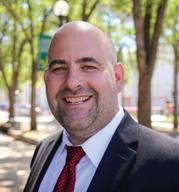
By Chad Oban, NDU Executive Director
As I write this, the Legislature is on its crossover break. This is the time at session when bills that survived their house of origin move across the hall to the second house for another look.
One issue we have spent a lot of time on is stopping bills that send public dollars to non-public schools, otherwise known as “school vouchers.” This is often seen as a conflict between advocates for private schools and public schools, but it really should be something that all taxpayers – and particularly all folks working in the public sector – care strongly about.
This session we have seen three different voucher schemes as bills. SB 2288 would have set up scholarship tax credits for people to help pay the costs of attending a private school. HB 1369 would have set up accounts for homeschool and private school parents to access money to pay for tuition and other things. Both of those bills were defeated.
HB 1281 is still alive, as of this writing. Under this bill, a person gets $500 off their taxes when they send kids to non-public schools. A very important point in this debate is that the average ND taxpayer pays ONLY $800 per
year in income taxes. That means those folks are paying much less for roads, higher education, social services, Highway Patrol, etc., because they made the choice to not use our public schools. This bill passed the House in a close vote and now is on its way to the Senate. If passed, this bill will create a nearly $10 million hole in the budget.
This is the place where we always point out we don’t have a problem with school choice, as long as public dollars are not used to fund that choice.
These types of tax schemes add up to significant revenue loss for the state. This leads to making it harder to recruit and retain the best state employees because we cannot afford raises and fewer resources for Higher Ed and K-12 Public schools.
Every session we hear that the budget is so tight. We are going to have to cut, but we rarely talk about these tax schemes that pass session after session (not for private schools, but often for private business or specific industries) that create huge budget holes.
This is the time to talk. Tell your legislators to stop wasting time and money on these schemes.



For specific information and to register, please visit pd.ndunited.org.
(BY CATEGORY)
Book studies are typically one credit courses that last approximately six weeks. One credit equates to 15 hours of study. Expectations include reading the book, answering discussion questions, responding to others’ responses and a reflection paper/action plan.
Behavioral Health
• iGen: The 10 Trends Shaping Today’s Young People and the Nation – April 5, 2021
• Easy to Love, Difficult to Discipline: The 7 Basic Skills for Turning Conflict – May 3, 2021

Leadership
• Leading a High Reliability School – April 19, 2021
Personal Wellness/Mindful
• Pilgrim at Tinker Creek – April 26, 2021
Student Success
• Empower: What Happens When Students Own Their Learning – April 12, 2021
• A Framework for Understanding Poverty – May 10, 2021
Cost: Members $50; ESP $25; Student members $0; Non-Members $100
The cost associated with this registration is for course participation only.
This course is eligible for one graduate credit through UND at an additional cost of $50 per credit paid directly to UND.
Racial Justice
Mini-Courses are short duration trainings that consist of a two-hour webinar presentation/discussion plus a short reflection paper. FIVE mini-course sessions plus reflection papers per session equal ONE credit. Earn up to THREE credits through UND. Mini-Courses will be offered weekly from 7:00-9:00 pm via ZOOM.
Racial Justice: (one credit) five sessions and reflection papers dealing with various aspects of racial justice.
March 24
– Talking about Race
March 31
– Privilege and Intersectionality
April 7

– Microaggressions and Tone Policing
April 14
– Educational Survival and the School to Prison Pipeline
April 21
– Abolitionist Teaching
Cost: Members $25; ESP $0; Student members $0; Non-Members $50
The cost associated with this registration is for course participation only.
This course is eligible for one graduate credit through UND at an additional cost of $50 per credit paid directly to UND.


If it’s an EMERGENCY and a child is in imminent DANGER CALL 9-1-1 NOW
To report suspected child abuse or neglect, Call North Dakota’s new toll-free
Available 8 a.m.- 5 p.m. Central Time (7 a.m - 4 p.m. MT), Monday - Friday, STARTING Jan. 4, 2021.
Key Benefits:
A dedicated team of specialized CPS intake professionals will gather all needed facts so CPS workers can act more quickly to protect children.
• Ensures consistent quality service
• Reduces phone tag because intake workers are available to take your call.
• Uses a NEW enhanced intake process with focused questions to better target actions.
• Allows local child welfare professionals to devote more quality time to strengthening and supporting families to keep more children safely at home
Law Enforcement or Medical Personnel:
• If you need a Child Protection Worker to respond to your location immediately, continue to call your local Human Service Zone office directly.
• You can provide supporting documents to the CPS Intake Unit by fax: 701.328.0361.




from
Earn your lane change in MSUM’s nationally accredited, high-value graduate programs and certificates. Get started this summer by taking a class or two.
▸ Curriculum & Instruction
▸ Graduate Content Courses for Concurrent Enrollment
▸ Special Education (Licensures: DD, ECSE, SLD, PHD)
▸ Educational Leadership (M.S. & Ed.S. & Ed.D.)
▸ MN and ND School Administrative Licensures
Register for summer classes at mnstate.edu/summer. Explore graduate education at mnstate.edu/graduate
dedicated to helping educators and their families protect what's important today and prepare for a

• Convenient payroll deduction available to pay auto and life insurance premiums
• Supplemental insurance to assist with medical and nonmedical expenses related to a covered injury or sickness
Solutions to the challenges educators face
•Student Loan Solutions
• DonorsChoose Workshop and Funding
• Financial Success Workshop
• ND Teachers' Fund for Retirement (TFFR) and ND Public Employees Retirement System (PERS)
For more information or to request a no-cost workshop at your school, contact your local Horace Mann representative.
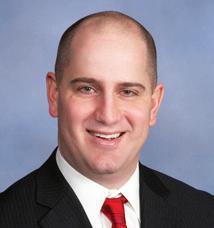
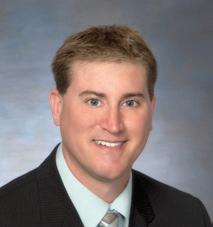
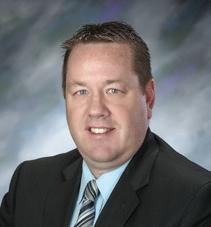
Horace Mann Insurance Company and its affiliates underwrite Horace Mann home and auto insurance. Horace Mann Life Insurance Company underwrites Horace Mann life insurance. National Teachers Associates Life Insurance Company, a Horace Mann Company, underwrites Horace Mann supplemental insurance products. Not all products are available in all states.
NDU has agreements with Horace Mann and affiliates where Horace Mann pays NDU to provide various services that are aimed at familiarizing NDU members with the Horace Mann brand, products or services.

(1120)



